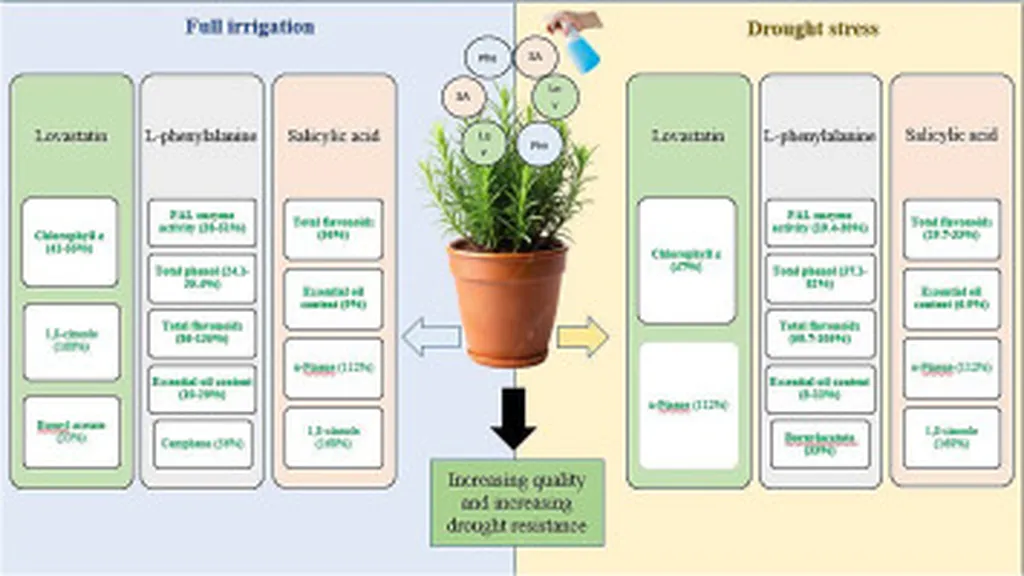In the arid landscapes where rosemary thrives, farmers face a delicate balancing act: nurturing their crops with just the right amount of water and nutrients to maximize yield and quality. New research published in *Frontiers in Plant Science* offers a promising strategy for rosemary cultivation, revealing how a careful interplay of drought and phosphorus fertilization can boost essential oil production without sacrificing biomass.
The study, led by Mohamed Alfalah of the College of Sustainable Agriculture and Environmental Sciences at Mohammed VI Polytechnic University in Morocco, explored how different levels of water stress and phosphorus fertilization affect rosemary’s growth, physiology, and essential oil composition. The findings suggest that moderate drought, when paired with optimal phosphorus levels, can enhance the plant’s essential oil yield and quality, offering a sustainable approach for farmers in water-scarce regions.
Rosemary, a hardy Mediterranean herb, is prized for its essential oils, which are used in flavors, fragrances, and even traditional medicine. However, its cultivation often faces challenges from water scarcity and nutrient limitations. Alfalah and his team subjected rosemary plants to varying levels of irrigation and phosphorus fertilization to understand how these factors interact to influence the plant’s growth and essential oil production.
The researchers found that increasing drought stress significantly reduced growth indicators such as leaf area, stem length, and biomass. However, moderate drought induced root elongation, a sign of the plant’s adaptive responses. Phosphorus fertilization, on the other hand, significantly influenced stem diameter and leaf area, highlighting its crucial role in plant development.
The most striking finding came when the team combined moderate drought with a mid-range phosphorus level. This combination resulted in the highest essential oil yield, up to 113% more than well-watered controls. “This treatment not only enhanced the yield but also markedly improved the accumulation of key oxygenated monoterpenes, which are highly valued in the industry,” Alfalah explained. These compounds include endo-borneol, l-α-terpineol, verbenone, camphor, terpineol, and linalool, all of which contribute to the unique aroma and therapeutic properties of rosemary oil.
In contrast, severe drought shifted the oil profile toward monoterpene hydrocarbons, which are less desirable for commercial applications. The study’s Principal Component Analysis confirmed distinct metabolic clustering under moderate drought and optimal phosphorus doses, indicating a metabolic tipping point that enhances essential oil biosynthesis.
The implications for the agriculture sector are significant. As water resources become increasingly scarce, farmers need sustainable strategies to maintain crop productivity and quality. This research suggests that by carefully managing water stress and phosphorus fertilization, rosemary growers can improve essential oil yield and quality without severely compromising biomass. “This approach offers a strategic cultivation method for rosemary in water-limited environments, potentially increasing profitability and sustainability,” Alfalah noted.
The findings could also pave the way for similar studies on other aromatic and medicinal plants, exploring how controlled stress and nutrient management can optimize their secondary metabolite production. As the global demand for natural and organic products continues to rise, such strategies will be crucial for meeting market needs while conserving precious resources.
In the quest for sustainable agriculture, this research shines a light on the delicate balance between stress and nourishment, offering a blueprint for cultivating resilience and abundance in the face of adversity. As farmers and scientists alike grapple with the challenges of a changing climate, the lessons from rosemary may well hold the key to a more prosperous and sustainable future.

